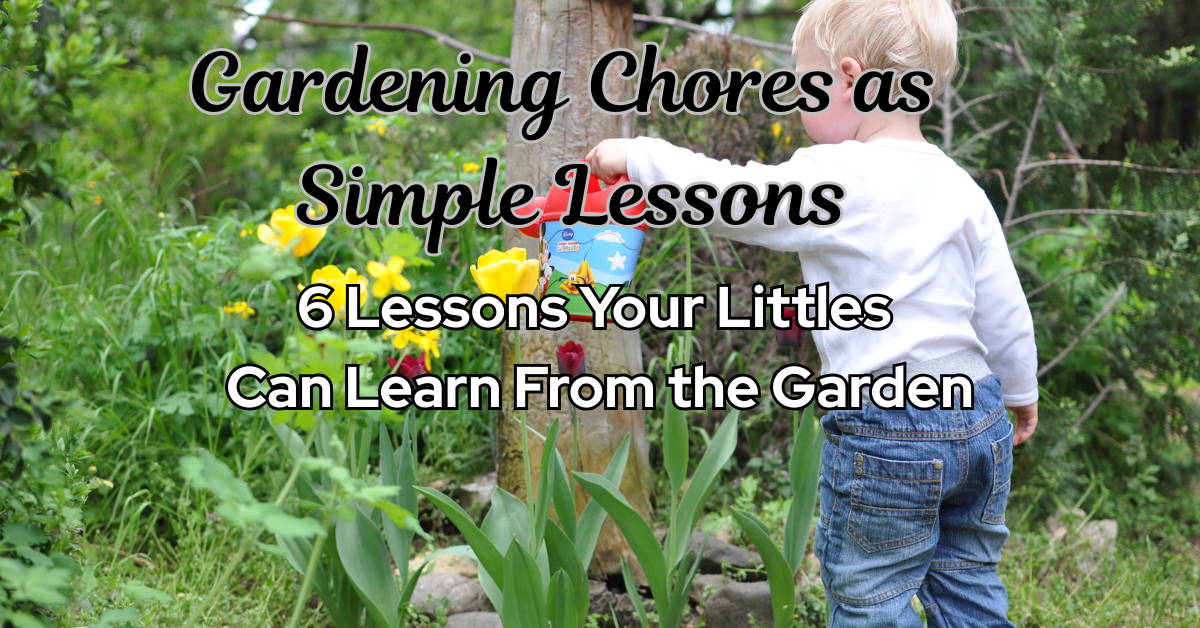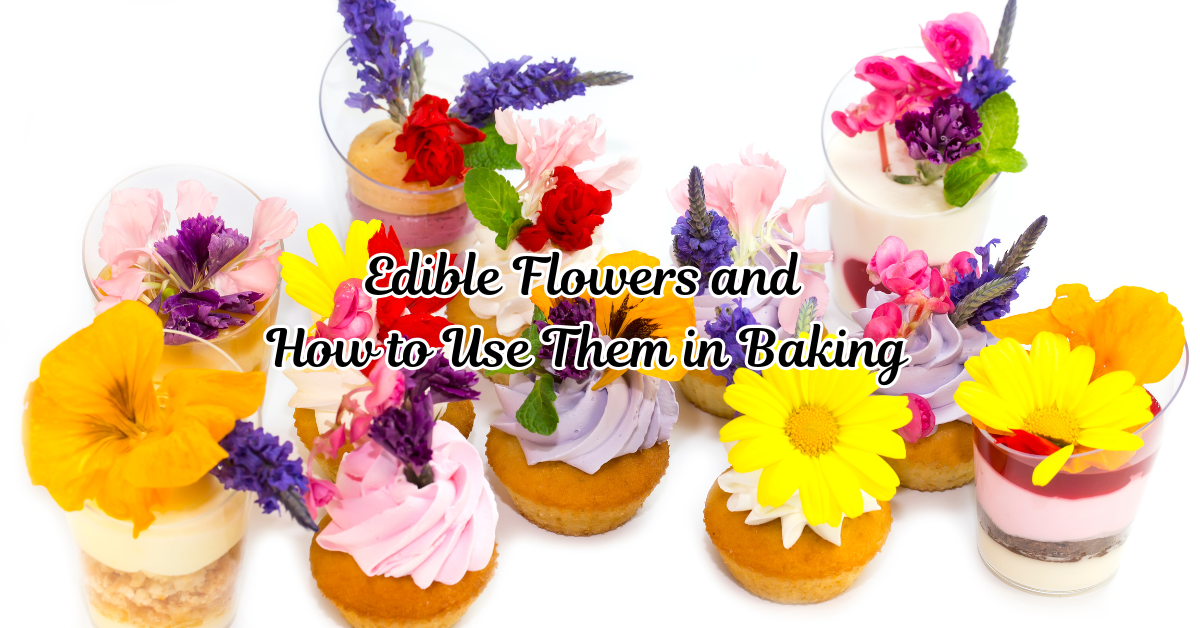One of the most satisfying things for me to do is clean the dirt out from under my fingernails after working in the garden. I love to clean so…there’s that. And it’s a great visual reminder that I am growing something from the Earth, or trying to.
Gardening is not necessarily glamorous. It’s not a quick hobby. It’s not even that efficient when you’ve got a toddler on your hip or a five-year-old with a watering can twice their size. But gardening ,particularly the gentle, repetitive chores of it, can become one of your life’s most gentle teachers.
In this era of slow living I’ve realized that these mundane tasks are not burdens to be checked off. Gardening chores whisper to us, if we let them. They teach lessons that don’t shout or demand, but unfold slowly like the very flowers you are tending.
Let me share a few of those lessons with you. Pulled from compost piles, weedy corners, and the peace and quiet of early morning soil. If you’d like to put these steps to use, check out my posts on creating a pollinator garden or a kitchen garden.
If you are new to gardening, have a look at this gardening tool kit. Its great for beginners and pros alike. And it all comes in a cute little carrying bag.
This post may contain affiliate links, which means I may earn a small commission if you choose to make a purchase—at no extra cost to you. I only share products I truly love and believe will add value to your life. Thank you for supporting this cozy corner of the internet
1. Weeding Teaches Discernment
There’s a time each summer when I feel like the weeds outnumber the plants. Bindweed winds its sneaky legs through the strawberry patches, dandelions stake their claim among the carrots (and the whole rest of the yard lol), and purslane forms its own neighborhood next to the basil.
It used to stress me out. I’d attack the garden with frantic urgency, yanking and tossing, trying to make it perfect again.
But weeding, I’ve found, is more about discernment than domination. It’s about learning to see what belongs and what doesn’t. What’s nourishing and what’s not. It’s quiet decision-making, repeated again and again. And in doing so, we develop a kind of inner knowing, the same discernment that helps us protect our time, our homes, and our energy.
Not everything gets pulled at once. And not every “weed” is bad. Some are edible. Some are medicinal. Some are just misunderstood.
The garden reminds me to slow down and look closer before removing what doesn’t immediately seem useful.
2. Watering Teaches Presence
There’s a certain something in the sound of water falling into dry soil. It’s almost meditative.
But watering can’t be rushed.
If you go too quickly, the water just rolls off the surface and never sinks in. The roots stay thirsty, the plants wilt anyway, and your effort is wasted. But if you slow down, if you stay with each plant long enough for the soil to accept the gift of water, everything changes.
Watering teaches me to be fully present in my garden.
It reminds me that my attention matters. That when I’m scattered, everything suffers. But when I bring my full self, even just for a few quiet minutes, the growing begins again.
In a world of multitasking and half-listening, gardening invites us to be wholly here.
3. Deadheading Teaches Letting Go
I used to hate removing the spent blooms. It felt a little sad, like I was stealing from the plant.
But I learned that deadheading isn’t about loss. It’s about redirecting energy.
When we remove the blooms that have already given all they had, we create space for new life. We allow the plant to keep growing, to bloom again.
Deadheading teaches me how to let go of what was beautiful but is no longer serving a purpose.
In life, we hold on to a lot. Things like old habits, expired goals, even outdated versions of ourselves. But there’s strength in the pruning. There’s grace in acknowledging: “This was lovely, but now it’s time for something new.”
4. Mulching Teaches Preparation
Laying down mulch isn’t flashy or fun. It’s not the part of gardening people rave about on Instagram. But it’s one of the most important tasks to do.
Mulching protects. It insulates. It holds in moisture, suppresses weeds, and prepares the soil for what’s ahead.
It’s a quiet kind of work done in anticipation, not for applause.
This simple chore reminds me to do the quiet preparation in my own life. Setting boundaries before I burn out, filling my cup before I fill others, planning meals before hunger strikes. Mulching is future kindness.
And in a world obsessed with immediate results, I’m grateful for the gentle reminder that sometimes the best work is the work no one can see.
5. Composting Teaches Redemption
Our compost pile is a glorious mess. Eggshells, coffee grounds, pulled weeds, and wilted lettuce. Things that most people consider trash are now transforming to be beneficial.
It’s warm to the touch. It smells earthy and alive. And it reminds me on a daily basis that nothing is wasted.
Gardening taught me to see scraps differently. To see trash and messes not as failures, but as ingredients for future growth. You know what they say, “One man’s trash is another man’s treasure.” Well, one man’s trash can also be fertilizer for your garden.
Composting teaches me redemption.
It tells me that even in decay, there is life. That what seems like the end might just be a beginning. That healing takes time, but it happens. If we let it.
6. Harvesting Teaches Gratitude
When the first cherry tomatoes ripen on the vine, I swear they glow like homing beacons. I’m almost scared to pick them because I always wonder if they’re the ONLY ones I’ll get.
Because I know what went into it.
The waiting. The watering. The late-night frost warnings. The toddler who picked all the green ones a week too soon. The squirrels who got the first harvest.
Harvesting is never just about the food. It’s about gratitude.
It’s about seeing the abundance that came from your ordinary repetitive care. And giving thanks for the growth you didn’t always feel happening.
It reminds me to celebrate the little wins. To savor the sweetness, and to trust that effort and intention does produce.
Gardening with Kids: Gentle Lessons for Them, Too
My children help in the garden. Sometimes enthusiastically, sometimes kicking and screaming. But I believe that these chores are shaping them too.
They’re learning how to care for living things. They’re seeing that food doesn’t (and probably shouldn’t) always come from a box, but from time and soil and sun. They’re discovering patience and joy and failure and second chances.
Gardening chores may look small, but they are powerful educators. They grow not just tomatoes, but tenderness. Not just peas, but perseverance.
They teach us gently, slowly, and again and again how to live well.
Closing Thoughts
In our quest for the cozy and the meaningful, it’s easy to chase aesthetics. To imagine the “perfect” garden: symmetrical rows, pristine paths, flowers in full bloom. But that’s not realistic for most of us. Gardening is chaotic. My zucchini and squash plants damn near took over my whole backyard this last summer. Plants don’t stay in neat rows and don’t care about being “ready for the gram.” They go where they need to be to thrive.
But the beauty, I’ve found, is in the daily tending. In the ordinary everyday chores. The muddy boots at the back door and the missed zucchini growing under the leaves.
Gardening is a mirror. It reflects back what we bring to it: our hope, our care, our consistency.
And over time, it transforms itself and us.
So the next time you head out with your gloves and your trowel, remember: you’re not just tending a garden.
You’re gently learning how to tend a life.
What are your favorite lessons from the garden? Drop a comment below or tag me in your garden moments over on Instagram @bloombatterblog. Let’s grow slow and savor the season — together.





